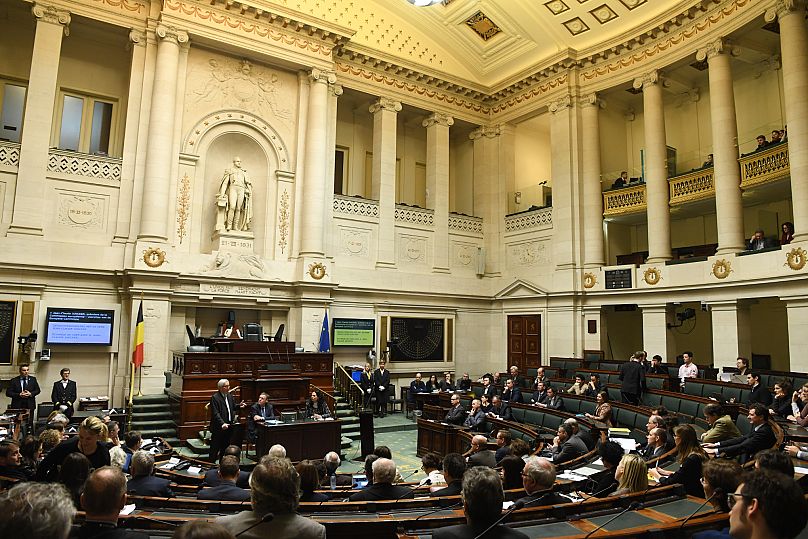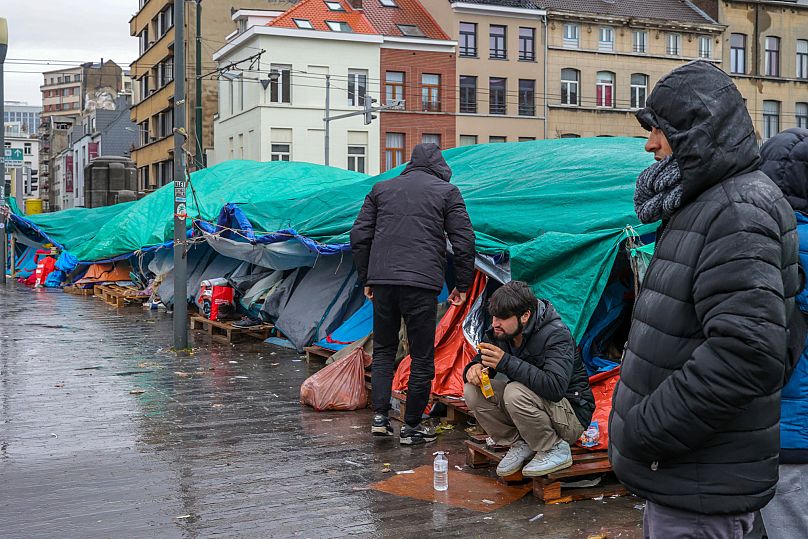Belgium has decided to restrict the conditions of access to family reunification for migrants. This revision of the criteria is far from an isolated case in Europe, with Portugal and Germany adopting similar approaches.
The Brussels Immigration office is an imposing building, spread over twelve floors of a concrete block constructed in the 1960s. It's here where the fate of migrants and their families is decided.
And now, one service in particular being offered at the centre is in the political spotlight.
Last week, MPs passed a government bill restricting access to family reunification. This scheme allows legally resident foreign nationals to bring in one or more family members.
Under the new guidelines, refugees will only have six months to submit their application. Beneficiaries of subsidiary protection, those who do not have refugee status, will have to wait two years before they can submit their application.
The text also requires greater financial resources. The minimum income required to submit an application has been increased.
Migrants now need to earn around €2,300 per month, compared with the €2,100 under the previous regulations. This amount is increased by 10% for each additional family member.
"If someone wants to bring in their partner and two children, they have to earn €2,700 net per month," explains Thomas Willekens, policy officer for the Brussels-based NGO Vluchtelingenwerk Vlaanderen.
This sum "is enormous and I would say that the average employee in Belgium does not even earn this amount," he adds.
A virtual impossibility without a name
The Belgian Minister for Asylum and Migration, Flemish nationalist Anneleen Van Bossuyt, has defended these new measures.
The minister who originally put forward the proposal said, "We need to reduce the influx of people. Our society is no longer able to bear this burden."
The government wants to reduce the number of migrants arriving through family reunification. According to figures from the Immigration Office, last year 20,724 people from countries outside the European Union obtained visas for Belgium under this scheme.
Belgian authorities have also decided to increase the application fee for naturalisation, up from €150 to €1,000.
For Thomas Willekens, these new rules are above all a covert way of making family reunification impossible, at the risk of plunging these families into an even more dangerous situation.
"The consequences for refugees in Belgium will be prolonged separation from their families, which will have an impact on their integration and inclusion in Belgian society. It's difficult to learn the language if you're worried about your partner in Afghanistan, for example," he explains.
"As for refugees and countries of origin, while they used to be able to use this safe and legal route to come to Belgium, they no longer have access to it. They will therefore turn to smugglers to come to Europe."
A European trend
Belgium is not alone in Europe.
Last week, Portugal also adopted more stringent measures for granting family reunification.
German MPs approved the suspension of the family reunification scheme last month for people with "subsidiary protection," in other words those who do not have refugee status.
While Austria has suspended family reunification for a period of six months. In practical terms, applications can be submitted to the Austrian authorities, but will not be processed.













